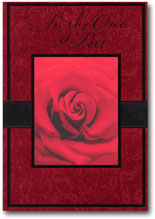The Vogon Poetry Society

According to the Hitchhiker’s Guide To the Galaxy, the Vogons are responsible for the third worst poetry in the universe. A bureaucratic species, Vogons enjoy reading their poetry to other creatures who promptly try to kill or at least deafen themselves so the torture will end. But today I was involved in an event that was nothing like that. It was a media thing for an upcoming poetry festival in Edmonton. A sunny day, a casual outdoor crowd and some good poetry.
I wanted to make the most of my allotted two minutes, so I chose to read a poem I had written on Valentine’s Day. The poem was inspired by a Hallmark card that had outsol
d all other Hallmark Valentine’s Day cards by a ratio of five to one. (The story was a news item. How slow was that news day? Or, more accurately, it’s just another example of corporate publicity increasingly substituting for news.) When I looked up the card on the internet, I was in awe of its banality: “Each time I see you, hold you, think of you, here's what I do/I fall deeply, madly, happily in love with you. Happy Valentine’s Day” (card V330-5, Hallmark). The card has been the leader in sales over the last two Valentine’s Days. And it’s awful, vacant poetry.
But right away I want to apologize to whoever wrote that card and to all the people who bought it. The card serves its purpose and serves it clearly and succinctly. Many people will look at the greeting itself maybe once or twice. The front of the card is what they often remember most. And even more importantly, we remember the person who gave the card. How can what I consider legitimate poetry compete with something that intimate?
It can’t. The poetry I like to read consistently questions the words and borders we use to define our lives. The greeting card above helps reinforce ossified beliefs and assumptions about love and romance. So for me it’s bad poetry. But what I think of as bad poetry is what people most often prefer.
Just this weekend I ran into two examples of bad poetry. (They were the reason I chose the greeting card poem to read today.) The first example is in the miniseries made of Stephen King’s The Tommyknockers. Now, I’m a big fan of any story that has a poet as the hero, and this miniseries has some good moments and a nice slow build, but the most blood curdling part of the horror for me is when Jimmy Smits has to read one of our hero’s ‘great’ poems. It is in some ways a knockoff of Robert Frost’s “Stopping By Woods On A Snowy Evening” with the poet, Gard, saying again and again he has “one last mile to go”. You don’t get to hear ‘the poem’ in its entirety. You get a bunch of crossfades from one sequence of the poem to another as if the poem might have lasted a few hours. And yet the audience looks on, moved and both tearing up and smiling. The tearing up I can understand. The smiling must have been a misperceived group death grimace.
The second instance of bad poetry came from an American model now living in Italy. She’s very lucky I’ve forgotten her name. Hysterical amnesia can be a godsend. She read a few poems from her tome of a few hundred pages that a legitimate publisher had approved, possibly after reading the Necronomicon and eating a few people. Again, the publisher’s absent name is a victim of my inwardly turned, mind-blotting rage. I would recite the poems for you, but they are fairly typical: lots of adverbs, abstract nouns like ‘love’ and ‘courage,’ along with heapings of passive verbs that are hardly verbing at all. This is what makes it on TV. This and occasional celebrities peddling that book of poetry they’ve always wanted to write. (I can take all of the excesses of celebrity except their excursions into poetry. I’ll make an exception, though, for Viggo Mortensen.) Then, of course, there are some of the less artful rap lyrics, the twangiest of cowboy poets, the smarmy and ham-handed imitations of Beat poetry in the early “I Am Canadian” ads.
I don’t want to say that it’s all Vogon poetry and there is no place for it. In fact, years ago we had a Vogon poetry night where people read the worst poems they could find. Some of them were poems that other readers were fond of. Even now, there is no real consensus about what ‘good’ poetry is. How can we criticize that which is terrible if we don’t agree on its opposite? And how can we call greeting card poetry worthless when one successful greeting card will pull in more money than all of one poet’s poetry combined will earn in a lifetime?
And how objective can those of us who consider themselves ‘serious’ poets be when we are judging these so-called Vogons? We challenge audiences and hope that they can clear the imaginative hurdles we put in front of them, but most readers prefer to listen to poets clear iambic rhyming hurdles – up and down up and down. The ideal would be to have poets and readers stretching a bit to hand off the baton that is the poem. But that’s unlikely to happen in the current environment which is increasingly hospitable to the ‘Vogons among us.
Oh, and the worst poetry in the universe came from, according to Douglas Adams, a human.
1 Comments:
Super color scheme, I like it! Keep up the good work. Thanks for sharing this wonderful site with us.
»
Post a Comment
<< Home